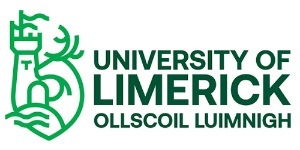University of Limerick
Limerick, Ireland
Full-time or Part-time Study
University of Limerick is Ireland’s ‘University of the Year 2019’ in the Sunday Times Good University Guide. The University is at the economic heart of this mid-west city and the wider region, attracting brainpower and resources in equal measure. Its graduates are among the most employable in Ireland, prepared for work by practical courses.
University of Limerick is also home to Ireland’s foremost industrial and applied mathematics research group, the Mathematics Applications Consortium for Science and Industry (MACSI). MACSI is regarded as one of most highly respected Mathematical and Statistical Modelling research centers in Europe. MACSI, at the University of Limerick, was recently acknowledged as an international exemplar of industrial mathematics in an independent review of knowledge exchange in the mathematical sciences by the UK’s Engineering and Physical Sciences Research Council entitled ‘The Era of Mathematics’.
Overview
The MSc Mathematical Modelling programme is delivered full-time over 12 months
(early September to end of August) or part-time over 24 months.
This course provides training in techniques of applied mathematics with emphasis on mathematical models of real world processes, their formulation in terms of differential equations, and methods of solutions, both numerical and analytical, of the models. A focus of the course is on practical problems which arise in industry, commerce, medicine, and the environmental and life sciences. There is a close alliance between the course and research problems in industrial applied mathematics, which underpins MACSI’s research.
Applicants who want to pursue careers in industry are a target for this course. Graduates will develop the skills necessary to enter the modern industrial workforce. This MSc will also prepare students for potential PhD studies in fields such mathematical modelling, industrial mathematics, inverse problems, numerical analysis and statistical modelling.
Our MSc in Mathematical Modelling is delivered in small classes and offers a variety of optional modules. You will complete a substantial research project, which may focus on a problem developed through MACSI’s connections with industry.
Programme
content
The first two semesters will be examined on coursework from both a mandatory
core and a suite of elective courses. The coursework will be followed by the
preparation of a dissertation over the summer months under a research
supervisor. The dissertation will be at research level and may focus on a
problem that arises through MACSI’s connections with industry.
Autumn:
- Advanced Methods I
- Scientific Computation
3 elective modules to be chosen from:
- Fundamentals of Continuum Mechanics
- Applied Analysis
- Mathematics of Natural Phenomena
- Perturbation Techniques and Asymptotics
- Numerical Partial Differential Equations
- Fundamentals of Financial Mathematics
- Operations Research 2
- Advanced Data Analysis
- Stochastic Processes
- Statistical Inference
- Introduction to Fluid Mechanics
Spring:
- Advanced Methods II
- Mathematical Geoscience
- Mathematical Biology and Physiology.
2 elective modules to be chosen from:
- Dynamical Systems
- Mathematical Modelling
- Stochastic Differential Equations for Finance
- Mathematical & Statistical Models of Investment
- Time Series Analysis
- Optimisation
- Advanced Data Modelling.
Summer:
- Project*
*The project should be submitted by late-August. The dissertation will be at research level, and often (though not inevitably) be on a problem which arises through MACSI’s connections with industry.
Graduate
profile
The skills you gain from this programme are highly transferable and open up
opportunities for a career in industry such as: Financial services including
accounting, international banking, lending analysis and investment analysis;
data analytics/data science, information and communication technologies;
engineering industries (e.g. environmental, electronics, aerospace and
automobile).
This programme will also prepare you for a career in scientific research (e.g. medical, social, economic, engineering, computing, industrial, biological and mathematical); data analysis including market research and demographics; manufacturing (including production planning and quality control), research and development, especially in the pharmaceutical and biotechnology industries; mathematics education (teaching and lecturing).
How To Apply
For more information, and how to apply please visit the course website.
